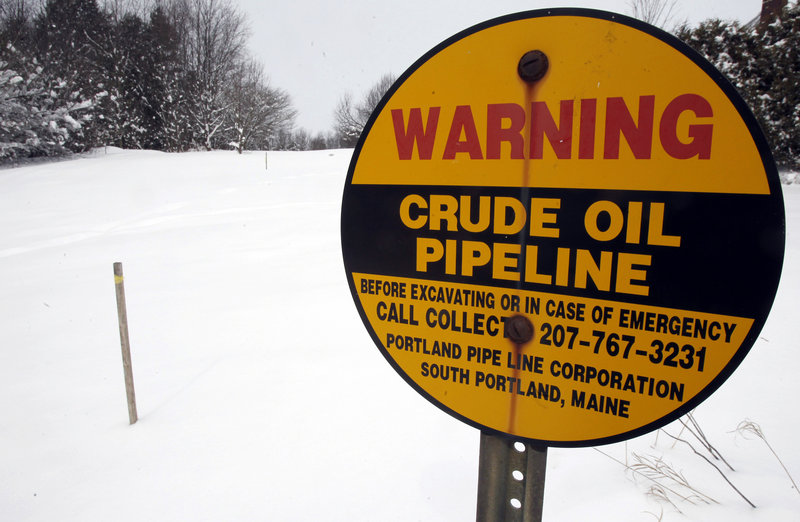WELLS — The oil sands deposits in Canada’s western province of Alberta are the third-largest proven supply of crude oil in the world, behind the reserves of Saudi Arabia and Venezuela. It is nearly 170 billion barrels of oil, owned and controlled by Maine’s biggest trading partner, our closest neighbor, and undeniably one of our best allies in the world.
The Canadian oil sands reserve, because of its abundance, proximity, and potential affordability, is a big target of those who would distort energy markets and drive prices higher to speed the transition to energy sources that are not yet ready to fuel our economy or heat our homes.
Wind, solar and tidal hopefully all have a big future in our energy mix, but access to affordable oil-based energy is a far more immediate need. That access is especially important here in Maine where a nation-leading 75 percent of homes rely on heating oil.
The battle lines around Canadian oil sands have been expanded to include cities and towns in Maine because the Portland-Montreal Pipe Line could potentially carry oil sands-derived crude to global markets that could include East Coast and Canadian Maritime oil refineries that provide heating oil and gasoline to Maine.
Unfortunately, Maine residents cannot prevent battles over global energy politics from coming to their communities. But they should insist on fair and accurate information from all sides.
Last month the Obama administration’s State Department, working in concert with the Environmental Protection Agency, issued a 2,000-page Draft Environmental Impact Statement on the proposed Keystone XL Pipeline project. The Environmental Impact Statement is the fourth federal review in four years on a 1,179-mile pipeline that would bring Alberta oil sands and other crude oil to Gulf Coast refineries.
President Obama’s State Department found that the characteristics of oil sands-derived crude are generally comparable to those of conventional crude oil and that pipeline incident rates involving Alberta pipelines that have been transporting oil sands crude for decades are similar to systems carrying conventional crude.
The report from the Obama administration considered corrosivity, viscosity, acid and sulfur content, temperature and other characteristics in reaching the finding that oils sands crude does not represent additional risks in terms of pipeline transportation.
The good news for Maine is that the Portland Pipe Line Corp., the operator of the Portland-Montreal Pipe Line, is among the best in the world at moving crude safely. Since 1941 the award-winning company has quietly and safely moved 240 billion gallons of light, medium and heavy crudes from its tank farm in South Portland to Montreal while paying taxes, providing jobs and supporting important local causes throughout the region.
While it does not have a project to transport oil sands crude, the Portland Pipe Line Corp. has been more than willing to talk about its operation, its stewardship and answer questions about its interest in a reversal project that could start moving oil south from Montreal to South Portland. Earlier in March, for example, company officials participated in a five-hour work session with the South Portland City Council and members of the public.
During that session the company talked about how its pipeline is an engineered system with strict and closely monitored tolerances for temperature and pressure, as well as its proven capacity for pumping different grades of crude. Participants at the session learned, for example, that heavy products are moved at the same pressures but at lower speeds than lighter crudes.
Portland Pipe Line Corp. also triple-checks every product to ensure it can safely be moved within the tolerances of its system. Company officials assured meeting participants that it never has and never will transport a product that cannot move safely within the engineered and regulated specifications of its pipeline.
People attending the South Portland work session also heard about how the pipeline is monitored and inspected with state-of-the-art equipment, and how the integrity of the system is maintained over time through repairs and upgrades. As is also the case with the far older Empire State Building or Golden Gate Bridge, a well-built asset can be maintained indefinitely through proper maintenance.
And the investment the industry is making in system integrity is paying off. Over the last decade, time-dependent causes of incidents involving pipelines put in service before 1950 are down by 86 percent according to federal government figures.
Those who oppose the use of fossil fuels are within their rights to make their case for change. But the people of Maine deserve a fact-based debate on the real issues rather than scare tactics that consistently ignore findings from credible, independent sources like the Obama administration.
– Special to the Telegram
Send questions/comments to the editors.



Success. Please wait for the page to reload. If the page does not reload within 5 seconds, please refresh the page.
Enter your email and password to access comments.
Hi, to comment on stories you must . This profile is in addition to your subscription and website login.
Already have a commenting profile? .
Invalid username/password.
Please check your email to confirm and complete your registration.
Only subscribers are eligible to post comments. Please subscribe or login first for digital access. Here’s why.
Use the form below to reset your password. When you've submitted your account email, we will send an email with a reset code.